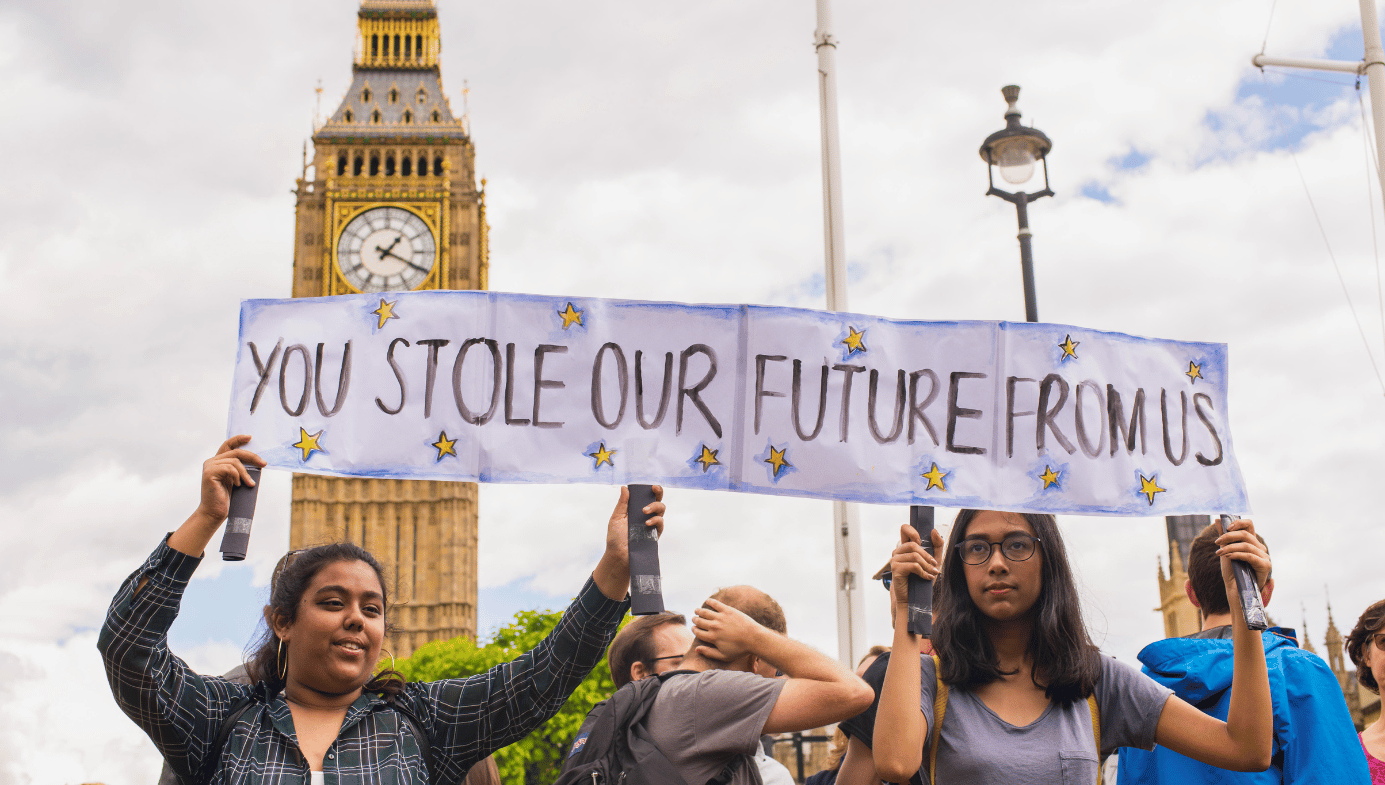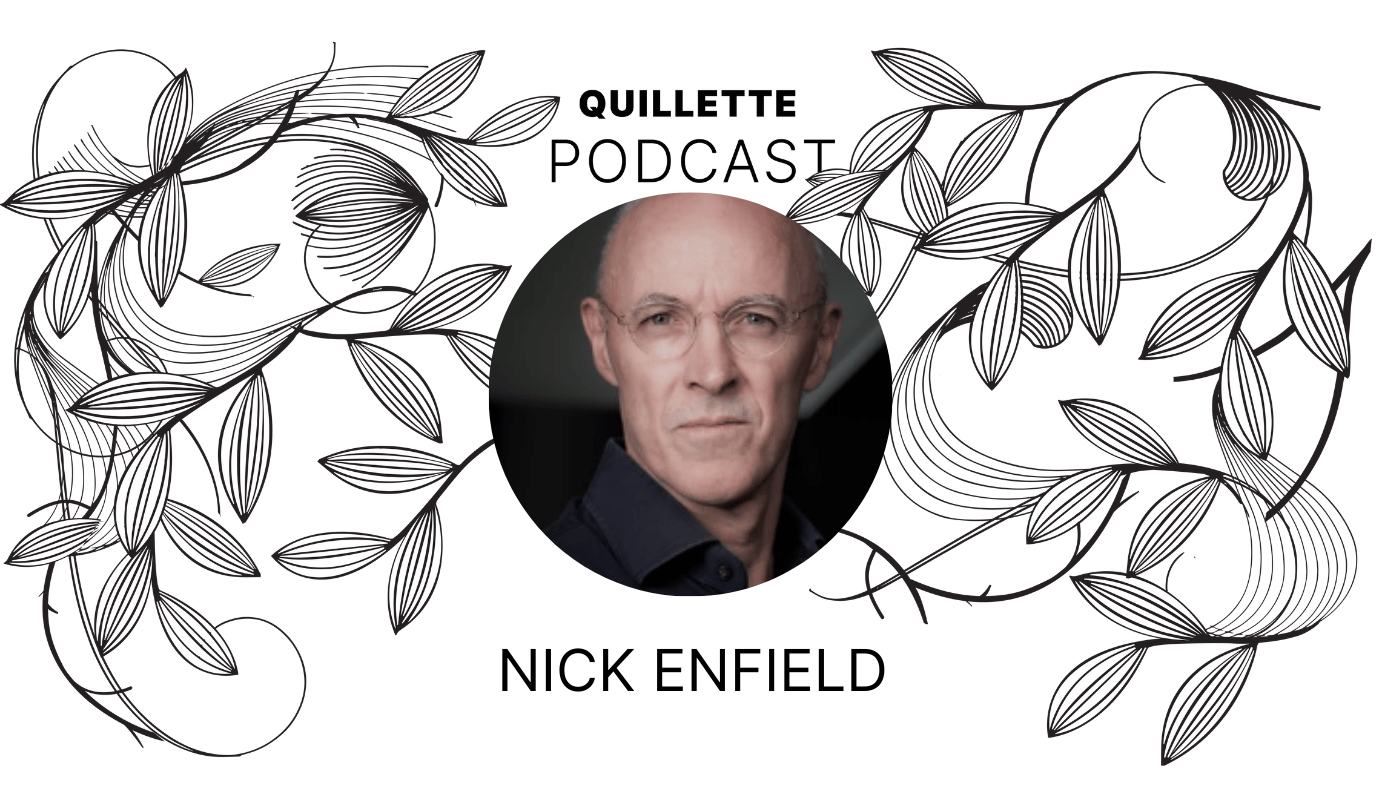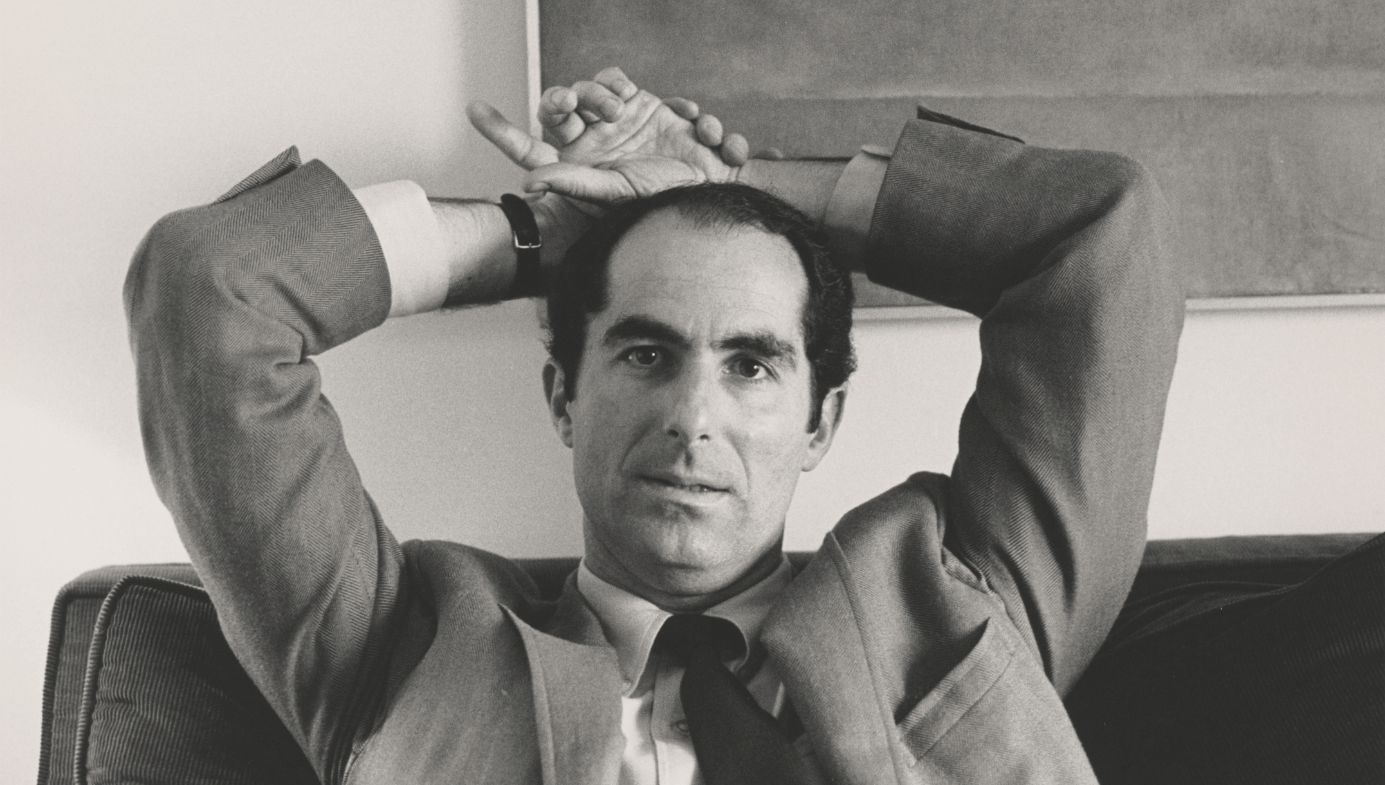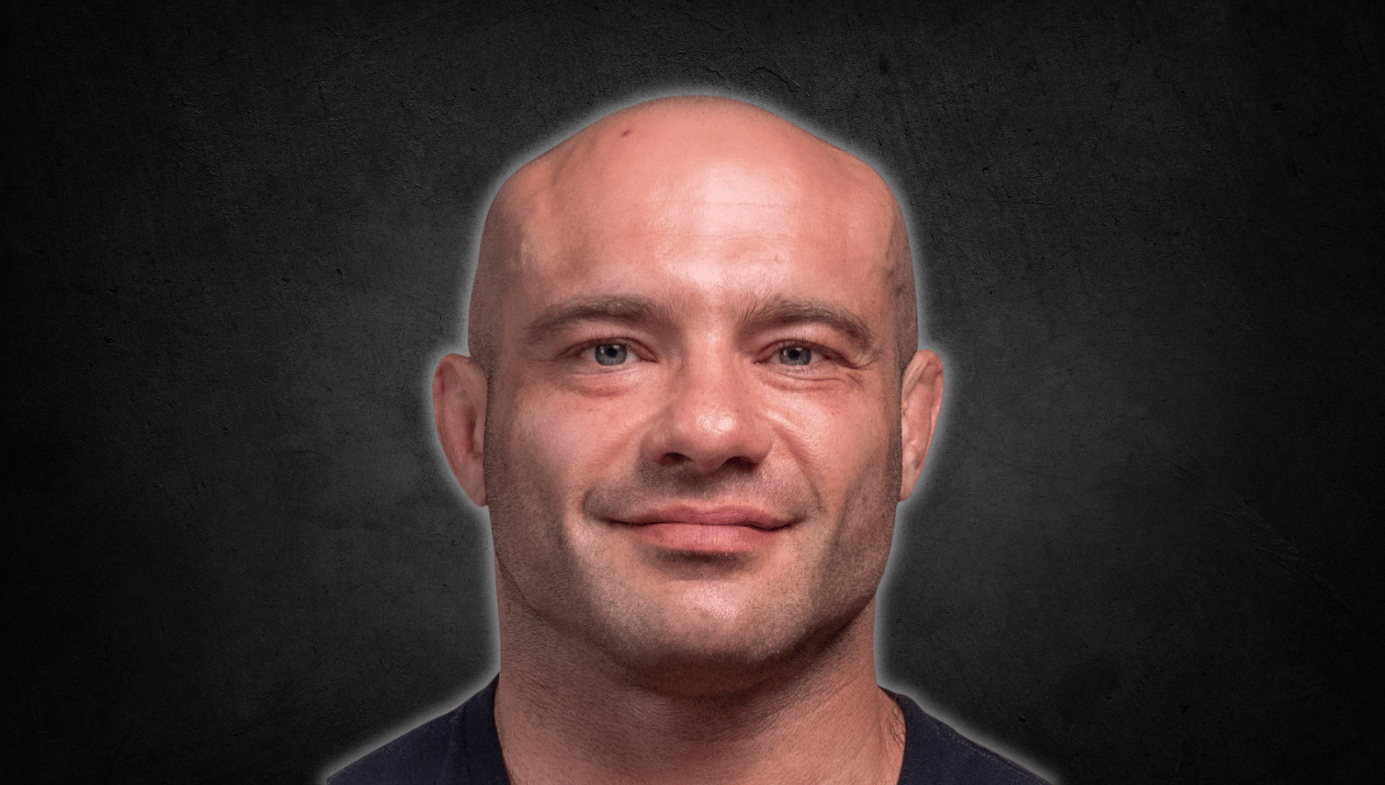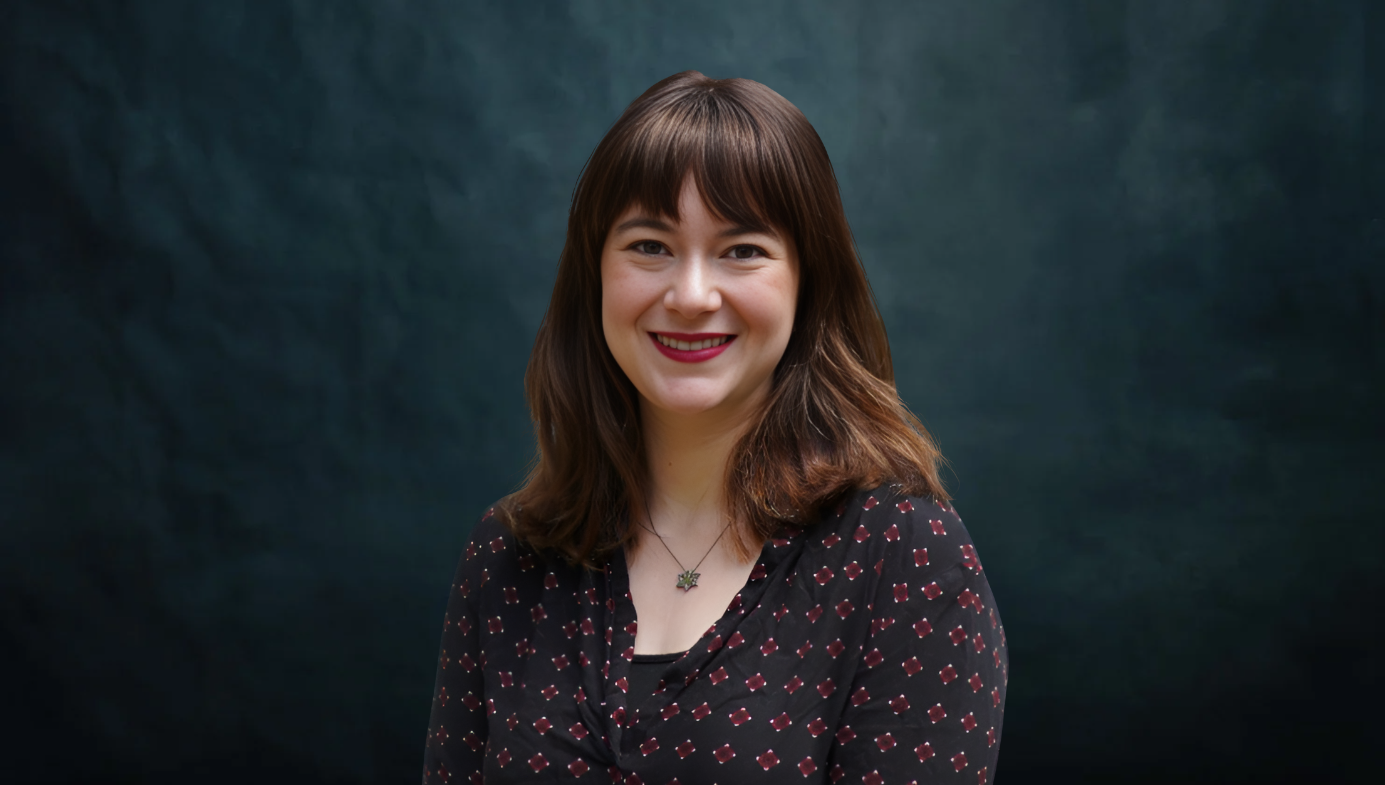Why Did Harvard University Go After One of Its Best Black Professors?
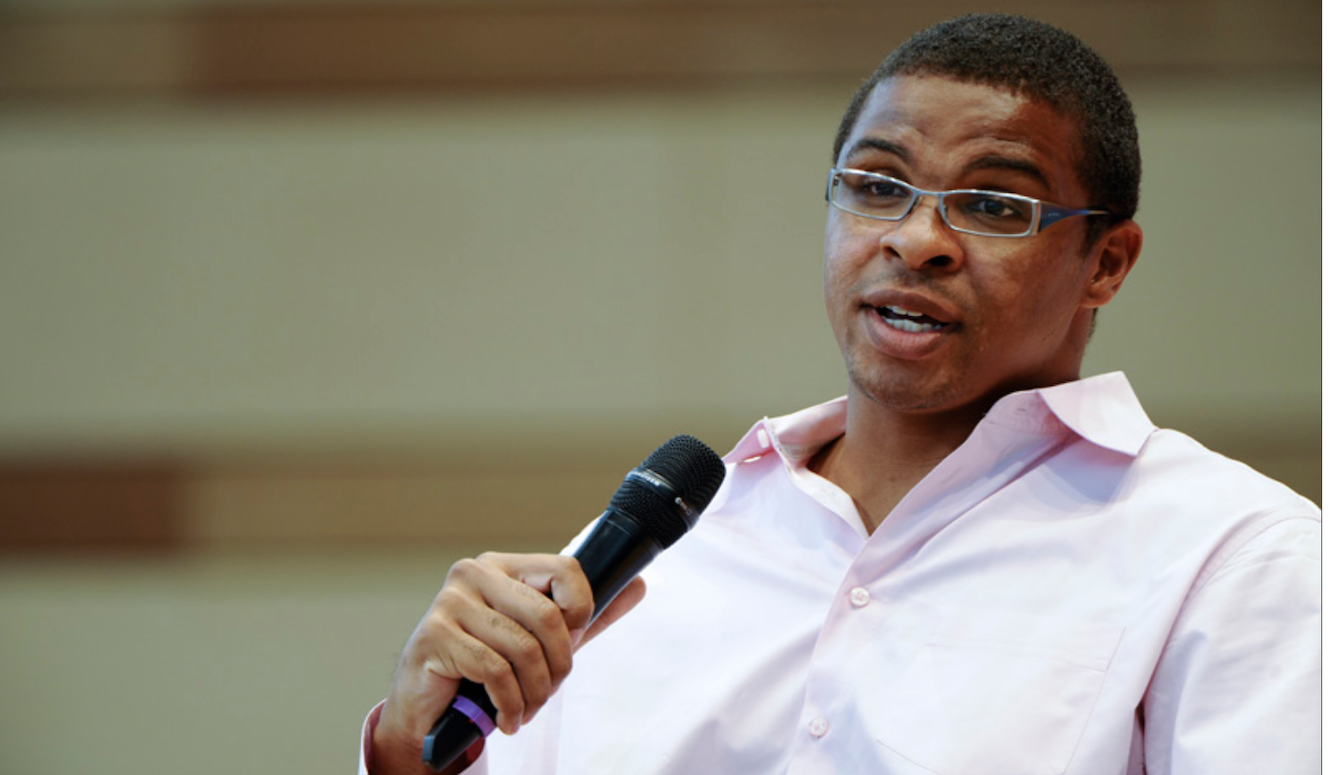
Roland Fryer Jr.’s life is a movie script: A man abandoned by his mom and raised by an alcoholic dad became the youngest black professor to ever secure tenure at Harvard University.
After ascending to the academic elite, Fryer didn’t resign himself to irrelevant technical puzzles; he put his genius to work investigating the most hotly contested issues of race in America, and translating his findings into concrete programs that dramatically improved the lives of poor black kids. He’s been praised as a genius, winning a MacArthur prize, a Time 100 listing, and the John Bates Clark Medal, awarded to the best under-40 economist in the world.

And then, all of a sudden, his career was derailed by an opaque sexual-harassment investigation. And no one seemed to want to say anything about it. Until now.
Drawing on previously unreported documents and interviews with his colleagues and friends, my new documentary makes the argument that Professor Fryer was targeted for ideological reasons. Despite the best efforts of some of the university’s elite, Fryer is still at Harvard, but with severely downgraded status, denied the resources he once had, and marked with a sexual-harassment stigma.
Fryer’s life started inauspiciously in Daytona Beach, Florida. His mom fled the state shortly after he was born; and he wouldn’t meet her until he was 20. He grew up with his dad, an employment-challenged gambling addict who went to jail for sexual assault shortly after Roland graduated from high school.
A middling student who dabbled in small-time crime, Fryer attended the University of Texas on an athletic scholarship. Undergraduate distribution requirements forced him to take an economics class, and he reports having instantly fallen in love with the data sets and equations—a glimpse of order for a man whose life had so far been defined by chaos.
He went on to graduate school at Penn State. Some early flashes of technical brilliance coupled with a near-suicidal work ethic (he gave himself a heart attack in his 30s) earned him a fellowship at the University of Chicago, where he studied under Steve Levitt, the Freakonomics phenom famous for his unorthodox applications of economic theory.
Fryer’s first major published work, co-authored with Levitt, deconstructed the 1920s-era Ku Klux Klan. Drawing on state-level membership data and crime reports, their research revealed something curious: there was little correlation between the size of a state’s KKK chapter and the number of local lynchings.
And they were surprised how expensive it was to become a KKK foot soldier: a $10 initiation fee, $6.50 for branded robes, a $5 annual membership charge, plus a mysterious yearly $1.80 “imperial tax.” That’s equivalent to about $350 today—a lot of money for many of the joiners. Fryer tracked the money flow, and found that it fuelled lucrative paydays for upper management. An imperial “Kleagle” could pocket $300,000 a year (in 2006 dollars). D.C. Stephenson, the “Grand Dragon” of Indiana, made double that. The KKK has the look of what Levitt and Fryer call a “classic pyramid scheme,” but for gullible racists.
Fryer was heavily recruited after his time at the University of Chicago, and ultimately accepted a tenure-track position at Harvard. He quickly established himself as a political outlier through his willingness to ask provocative questions and publish the results, even when they challenged liberal pieties. There’s no apparent partisan agenda, only a genuine search for truth.
Consider Fryer’s investigation of “acting white.” This is the controversial theory that explains the underperformance of some young black Americans according to the idea that they risk being stigmatized by their peers for high academic achievement. Drawing on survey data pertaining to tens of thousands of public-school students, Fryer found that while white and Asian students tended to steadily gain friends as they excelled in school, black students often started losing friends once their GPA got significantly beyond 3.0. (For Hispanic students, the pattern is even more pronounced).

Or take Fryer’s work with the Harlem Children’s Zone, a pioneering nonprofit in which poor, mostly black students often outperform their white peers at richer schools. Fryer wanted to figure out the reasons for the Zone’s success, so the same strategies could be applied to failing schools all over the country. The politically correct solutions to lagging black academic achievement—reduce class size, increase per-pupil spending, and upgrade teachers’ nominal credentials—had all provided disappointing results.
Fryer found that a central component of the Zone’s success was a culture of high expectations. The school is institutionally allergic to the condescension that’s become the fashionable response to black underachievement. Typified by Ibram X. Kendi, this logic goes: If achievement tests show persistent racial gaps, then the tests–not the schooling–are the problem, and they need to be scrapped.
This attitude only exacerbates underachievement, Fryer has argued. As he puts it, poor-performing schools tell kids from tough backgrounds, in effect, “We shouldn’t expect so much from you.” But the Zone tells those same kids, basically, “That’s too bad. Now let’s teach you the Pythagorean Theorem.”
The Zone’s culture is enforced through what might be termed aggressive human-capital management—economist-speak for firing teachers who expect less than excellence (which helps explain why the approach isn’t particularly fashionable within the education establishment). After being handed control of the 20 lowest-performing public schools in Houston, explicitly for the purpose of porting in the Zone’s pedagogy, Professor Fryer fired half the teachers and almost all of the principals. Within two years, he’d significantly boosted math scores and college matriculation.
More recently, Professor Fryer made national news when he jumped into an issue lying at the core of modern American race politics: police shootings. His colleagues painstakingly collected and categorized thousands of hand-written incident reports from the Houston police department. And their findings, reported in 2016, didn’t entirely fit the usual narrative.
Houston police were found to be more likely to engage in non-violent force on black suspects—tazing, handcuffing, and other physical submissions—than on white suspects, even when the suspect was described as compliant by the officer himself. No one had a problem with that part of the research. But the other major finding did create a stir: Black suspects were less likely to be shot by police than white suspects.
“People hate his guts because of the finding in Houston, because it runs counter to the Black Lives Matter narrative,” says Brown University professor Glenn Loury, who mentored Fryer early in his career. And this challenge to politically correct dogmas seems to have earned Fryer some powerful enemies at Harvard. He had no interest in going along with the received wisdom promoted by dominant members of the school’s black academic establishment. “I know that Roland was very dissatisfied with what he thought was the relatively modest intellectual acuity of some of his black colleagues,” says Professor Loury.
Four years ago, Fryer’s critics got an opportunity to undermine him when a former administrative assistant accused him of sexual harassment. That complaint initiated a Title IX proceeding, an opaque process that even non-conservatives acknowledged as being vulnerable to abuse. The standards of proof under Title IX are lower than in a proper trial. And defendants often aren’t allowed to confront their accuser or appeal the verdict.
Fryer isn’t flawless. The final Title IX report, which I have seen, paints a picture of a man who could be insensitive in the face of workplace power asymmetries, and who crossed boundaries with subordinates. He made some arguably inappropriate jokes in the office, like saying that an elderly university administrator “hadn’t been laid since black people were slaves.” Fryer also quipped that he’d learned his negotiating skills while “trying to get laid in high school”—standard locker-room talk from his days as a teenage football and basketball star.
Harvard investigators made an effort to dig up a second complainant, another former assistant who’d worked with him a decade prior. Fryer, who was not married at the time, had sent her a series of flirtatious messages. She’d formally complained to human resources, he’d stopped, and she ended up working with him for another eight months.
Harvard’s own investigators ultimately found that Prof. Fryer had never sexually propositioned or touched anyone, and their original recommendation for punishment was “training” on setting boundaries. That finding was transformed into an effort to derail his entire career: A small group of Harvard administrators overruled Harvard’s own Title IX office, suspended Professor Fryer without pay for two years, banned him from campus, and shut down his multi-million dollar education laboratory. He was a tenured professor, and they couldn’t get rid of him completely. But they could do their best to excommunicate him.
One of the administrators behind his punishment, Arts and Sciences Dean Claudine Gay, even reportedly went so far as to ask Harvard’s president to revoke Fryer’s tenure. Thankfully, the president declined. (There’s no known case of the university stripping a professor of tenure even once in the last hundred years.)
It’s notable that other Title IX cases at Harvard involving professors charged with more serious offenses have resulted in significantly less severe punishments. In the early 2000s, a STEM professor allegedly spent over two years exploiting one of his graduate students, demanding sexual favors in return for laboratory access and letters of recommendation. When she tried to end the relationship, he allegedly threatened to kill himself. The student went to Harvard authorities to press charges, and she reported being told that doing so would damage her career, and that she should “move on.”
Or take the case of Professor John Comaroff, a senior faculty member of the African American Studies Department, whose work conforms closely to the approved shibboleths about “the criminalization of race.” He was found guilty of sexually harassing graduate students in 2020, but his punishment consisted of mere paid administrative leave. For significantly less serious offenses, Fryer was subjected to far more severe punishment. His research operations, which once involved collaboration with over a hundred staff, were effectively ended.
Then came silence. Fryer’s friends and colleagues, many of whom I have interviewed, kept their concerns private, rightfully fearing Harvard’s wrath. None of the key figures, including Fryer himself, would appear on camera for our documentary. I submitted interview requests with Professors Fryer and Gay, as well as Social Science Dean Lawrence D. Bobo. All declined.
In quasi-exile, Roland has proven to be remarkably resilient. He raised money for a new outfit, Equal Opportunity Ventures, which is dedicated to supporting entrepreneurs who can help close the racial gap in wealth and education. One of its first investments was “Reconstruction,” a black-led online education project that provides an alternative to the relentless focus on victimization served up by the likes of the 1619 Project. It focuses on empowerment, offering courses on entrepreneurship and celebrations of black genius.
In the summer of 2020, at the height of America’s modern racial reckoning, Fryer released a detailed investigation into the “Ferguson effect.” His team examined data from about a dozen cities, stretching back decades, and found that if a police department is subjected to a federal “Pattern-or-Practice” investigation in the wake of a viral police killing, officers tended to withdraw from the community. In a paper co-authored with colleague Tanaya Devi, he concluded that
For investigations that were preceded by a viral incident of deadly force—Baltimore, Chicago, Cincinnati, Riverside and Ferguson—there is a marked increase in both homicide and total crime. The cumulative amount of crime that we estimate due to pattern-or-practice investigations in the two years after the announcement for this sample is 21.10 … per 100,000 for homicides, and 1,191.77 … per 100,000 for total felony crime. Put plainly, the causal effect of the investigations in these five cities—triggered mainly by the deaths of Freddie Gray, Laquan McDonald, Timothy Thomas, Tyisha Miller, and Michael Brown at the hands of police—has resulted in 893 more homicides than would have been expected with no investigation, and more than 33,472 additional felony crimes, relative to synthetic control cities.
Fryer found that that drawdown in police activity led to a surge in violent crime that predominantly victimized low-income black people. And he made a point of noting that the additional annual black deaths due to this withdrawal are roughly triple the number of black people killed per year at the height of lynching in America. You can guess how this kind of observation was treated by the likes of Profs. Gay and Bobo, both of whom grew up in far more privileged surroundings before taking their place among the chorus of Harvard’s bien pensants.
Last fall, Fryer returned to Harvard. But he’s been stripped of his named professorship, banned from interacting with graduate students, subjected to constant Title IX surveillance, and demoted to teaching undergraduates. All of which makes it hard not to conclude that Harvard is more concerned with protecting the integrity of its ideological codes—and making an example of a successful black scholar who challenged them—than with the future of black America.

